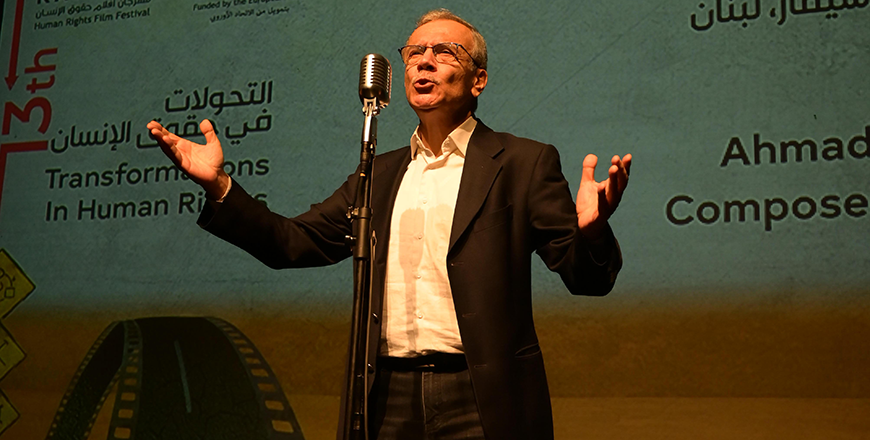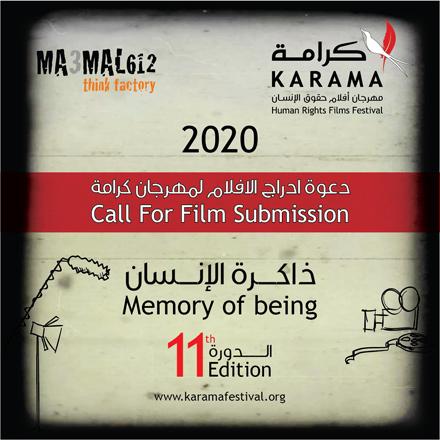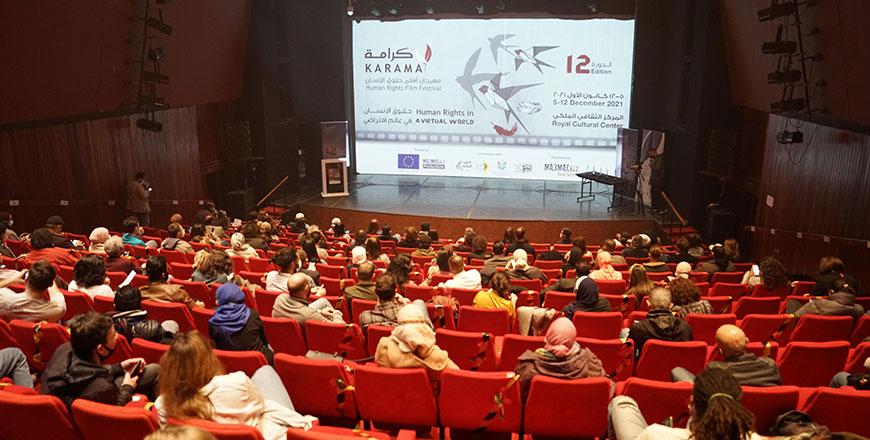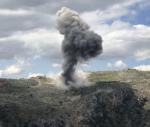You are here
13th Karama Human Rights Film Festival turns lens on ‘shifting post-pandemic realities’
By Mays Ibrahim Mustafa - Dec 15,2022 - Last updated at Dec 15,2022

Lebanese musician Ahmad Kaabour performs during the inauguration of the 13th Karama Human Rights Film at the Royal Cultural Centre in Amman on Thursday (Photo courtesy of Karama)
AMMAN — The 13th edition of Karama Human Rights Film Festival kicked off on Thursday at the Royal Cultural Centre (RCC) in Amman under the theme of “Transformation, Deviation, Mutation”.
This year’s edition “examines shifting post-pandemic social, economic and political realities that are marking the beginning of a new era, yet to be discovered”, according to a statement by Karama made available to The Jordan Times.
In her opening remarks, Festival Director Sawsan Darwaza said that the “radical” transformation witnessed by the world following the outbreak of the COVID-19 pandemic has lead people “to lose focus on what really matters”.
“This year’s theme intends to spark and encourage an honest observation of our collective and individual standpoints, in the hope that an informed and conscious choice of direction will emerge,” she said.
“Only by knowing where we stand, will we know where we are going,” Darwaza added.
Artistic Director Ehab Al Khatib said that the festival dedicated its “Empty Chair” recognition for the French director Jean-Luc Godard, who died last September at the age of 91, for his role in revolutionising cinema and as a “reminder of the necessity of change” in the film industry.
The festival also celebrates the 75th anniversary of the Universal Declaration of Human Rights, which marked the United Nation’s launch of a year-long campaign under the theme: “HYPERLINK "https://www.ohchr.org/en/get-involved/campaign/human-rights-day/udhr-75"Dignity, Freedom and Justice for All”.
During the opening, Head of Cooperation at the European Union Delegation to Jordan Patrick Lambrechts commended the festival’s role in bringing to light “human stories that matter”.
He also noted that cinema is a “powerful tool in bringing human rights to life”.
“It has the ability to influence, persuade, bring down walls and borders” between people and “inspire [them] to act and to drive change”, Lambrechts said.
The opening also featured the screening of Our Music, a 2004 film directed by Godard which touches on colonialism and the Israeli-Palestinian conflict.
The short animated film ZOO by Jordanian director Tariq Rimawi, which sheds light on the repercussions of war, was also displayed, followed by a performance by renowned Lebanese musician Ahmad Kaabour.
Additionally, Karama’s annual “Conscience of Art” exhibition opened its doors at the RCC.
The upcoming days will feature a number of musical performances, interactive group discussions and a symposium on “Climate Change and Societal Turbulence”. Karama’s community outreach programme also involves external film screenings in local schools and universities as well as refugee communities, according to organisers.
Caoimhe Butterly, an Irish human rights activist, film-maker and psychotherapist spoke with The Jordan Times about her film Tadhg, meaning “storyteller”, which will be screened on Saturday and Sunday at the RCC.
Butterly has worked with refugee and undocumented communities for over 20 years in Lebanon, Iraq, Palestine, Syria, Mexico, Haiti and Guatemala.
She co-authored and co-directed this film with her 10-year-old child Tadhg.
The film is a child’s reflection on life, friendship, the forests, the sea and the rights that are denied to refugees, according to Butterly.
She noted that Tadhg follows the journeys of two refugee teenagers from Darfur, Sudan and Syria who cross sea and land in search of “a safe and dignified human life”.
“It steps away from the failings of governments and political systems, bringing to light the purity of a child’s perspective that is able to instinctively distinguish justice from injustice and empathy from cruelty,” Butterly added.
The festival, which runs through December 21, will screen 65 films from 50 countries at the RCC.
It is co-sponsored by the EU and organised by MA3MAL612-Think Factory, a non-governmental organisation that aims to function as an incubator for artists and creative thinkers.
Related Articles
AMMAN — The 13th edition of Karama Human Rights Film Festival comes as a reminder of human rights priorities in a changing world, according
AMMAN — Shedding light on human rights issues, Karama Human Rights Film Festival’s 11th edition titled “Memory of Being” concluded on Thursd
AMMAN – The 12th edition of Karama Human Rights Film Festival, under the title of “Human Rights in a Virtual World”, concluded on Sunday eve


















